What's new for winter 27/28
Explore more on Destinations
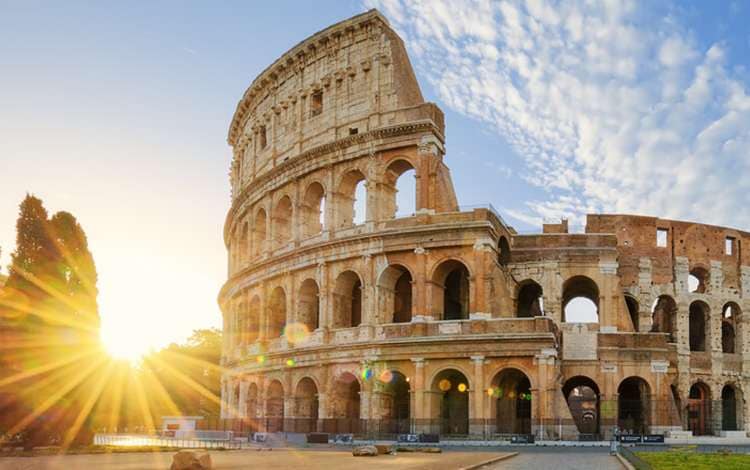
Have you ever caught yourself looking through holiday snaps and saying, ‘my camera just hasn’t done it justice’? Pretty as pictures can be, there’s nothing quite like seeing those epic, once-in-a-lifetime sights with your own two eyes. These six wonders are even more picture-perfect in person.
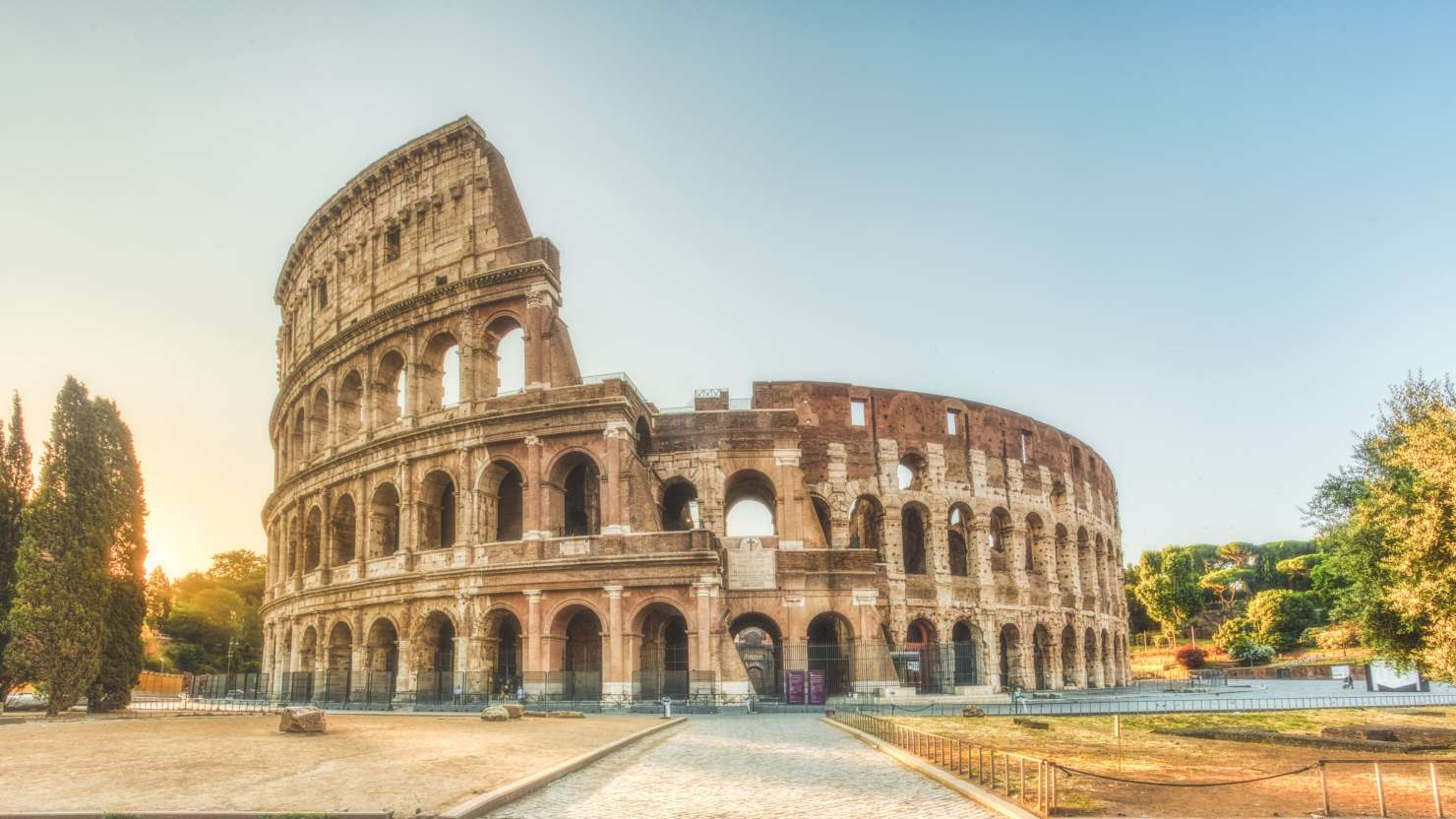
Two thousand years of history can be felt at Rome’s most iconic landmark. Over the millennia, the Colosseum (also called the Flavian Amphitheatre) has been home to gladiators, games and gruesome executions; it’s seen empires rise and fall; it’s survived earthquakes and fire. At its peak, the oval-shaped stone structure could hold roughly as many spectators as Manchester’s Old Trafford, and to this day it’s the largest amphitheatre in the world, measuring 189 metres long, 156 metres wide and 48.5 meters high.
It's set in the heart of the city with several other ancient attractions nearby (this is Rome, after all). Continue your history lesson at Palatine Hill, the city’s birthplace; the remains of the Domus Aurea, built by Emperor Nero; the Circus Maximus, the ancient chariot racing stadium; and the Roman Forum, which was once the centre of daily Roman life.
Tread in the footsteps of the Gladiators and explore the awe-inspiring Colosseum as your guide uncovers stories of the chaotic mortal combat that served to entertain the Romans.
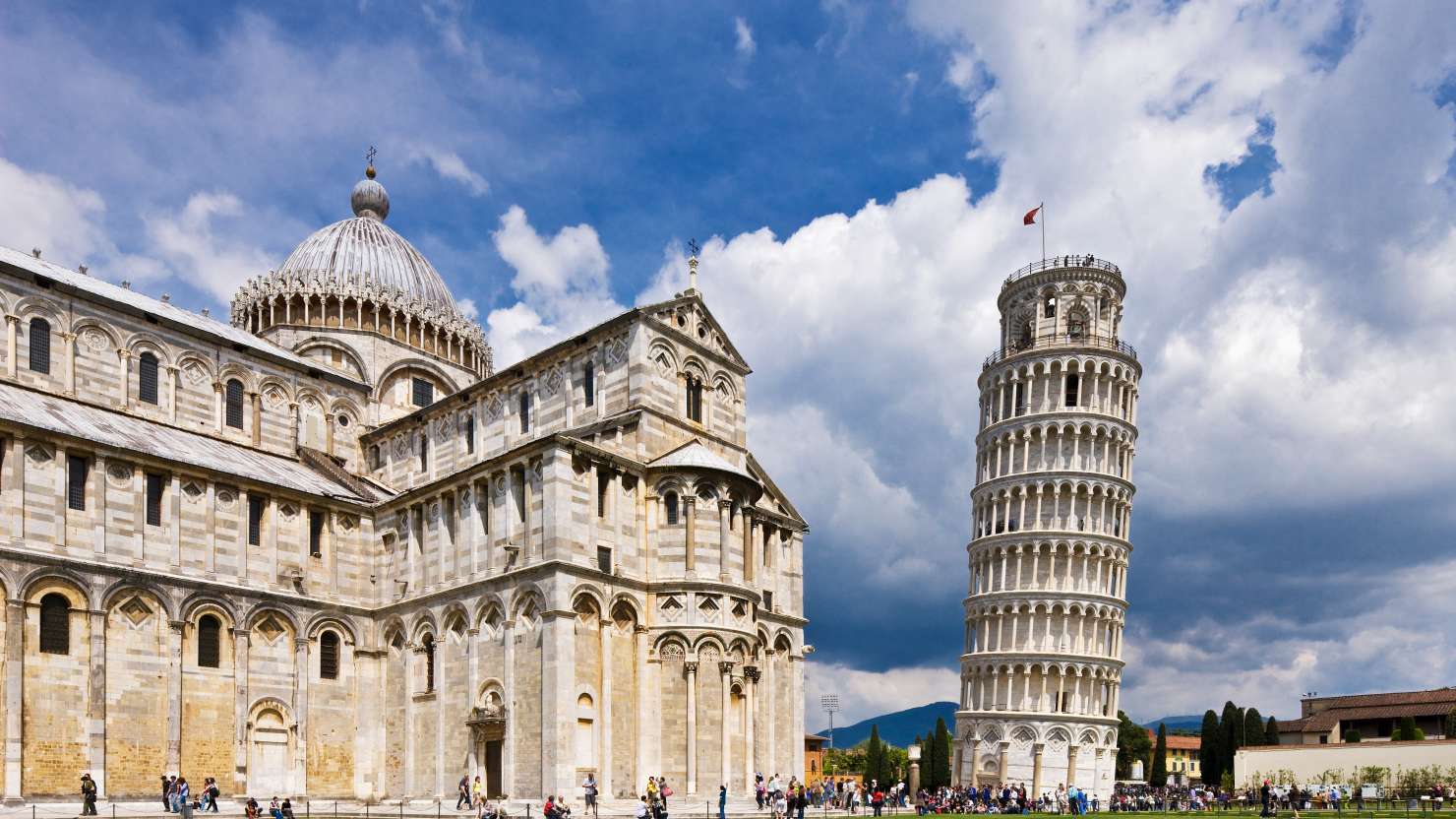
You’ve seen this Romanesque marble tower in countless pictures, its signature slant making it one of the world’s most recognisable buildings. Pisa’s preeminent attraction was completed in 1372 – 199 years after construction began – and acquired its lean from a faulty foundation.
The tower has leaned at differing degrees over the course of history. It was at its worst – 5.5 degrees – in 1990 and was stabilised soon after. It now sits at a 3.97 degree angle, meaning it’s safe enough for visitors to climb to the top, assuming you don’t mind the 251 spiralling steps!
On the lawn outside the tower, try as you may but you won’t be able to resist the urge to pose as though you’re holding it up. Snapping ‘that’ photo has become as much a part of the Pisa experience as seeing the tower itself, so go on and give into temptation.
Take in Pisa’s beautiful sights from two unique vantage points: on a cruise along the River Arno, and on a trolley train tour through town.
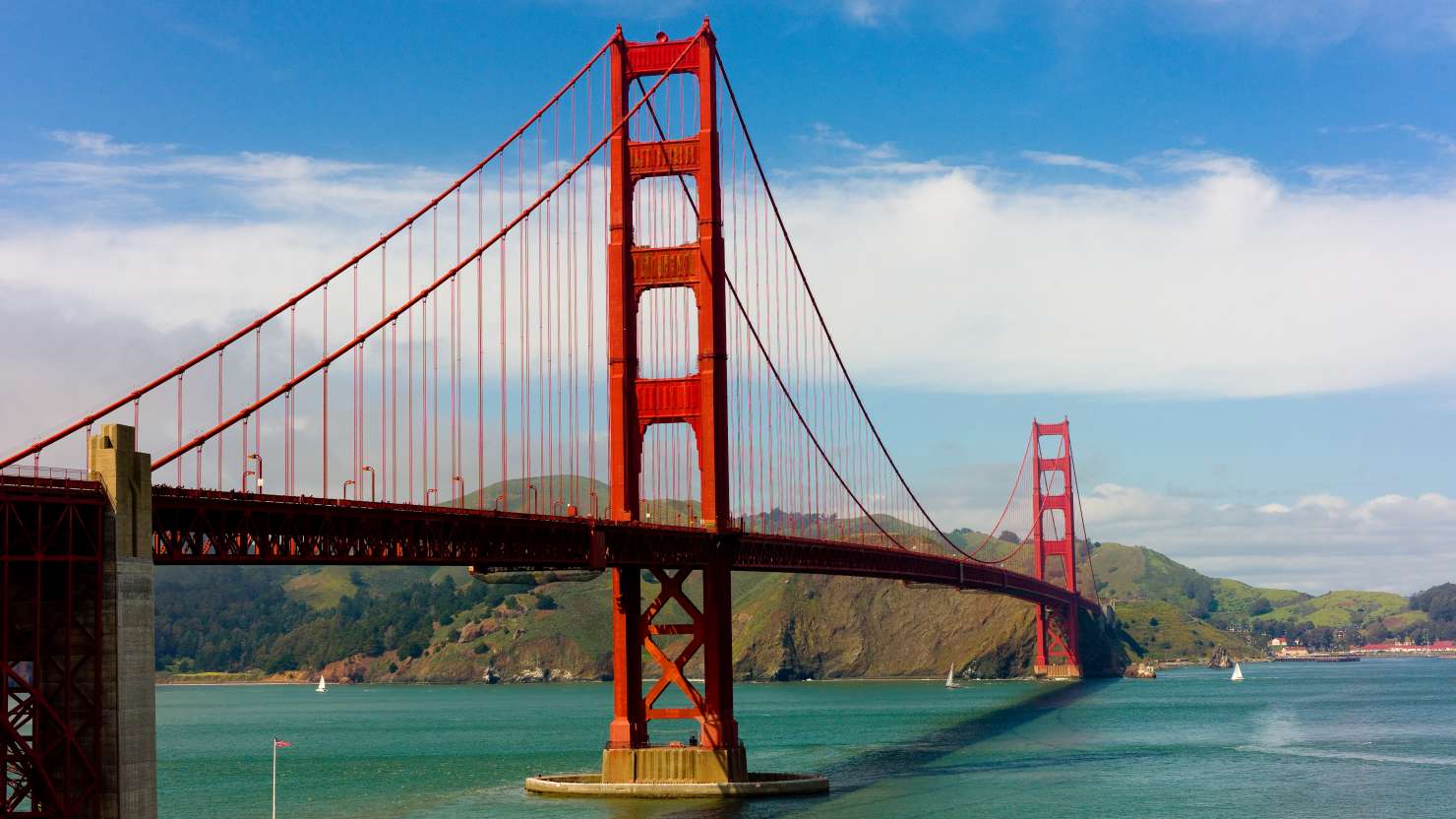
The Golden Gate Bridge is a symbol of the city, of California and indeed the United States as a whole – when it was completed in 1937, it was considered a reflection of the country’s power, progress and design prowess.
Stretching over the Golden Gate Strait from San Francisco to Marin County, the scenery it spans is as beautiful as the bridge itself – rolling hills, blue seas and sandy beaches, with a good chance of some atmospheric fog. However, you won’t be able to take your eyes off the mighty structure: 382 million kg of steel towers, cables and ropes painted in orange vermillion (aka ‘international orange’) with authentic Art Deco touches.
When it opened to the public (early and under budget!), it was the longest and tallest suspension bridge in the world. It may have since lost those titles, but it’s easily still the most beautiful.
A tour that takes in Alamo Square, the serene lakes and lawns of Golden Gate Park, the hustle and bustle of Chinatown and a drive over the Golden Gate Bridge.
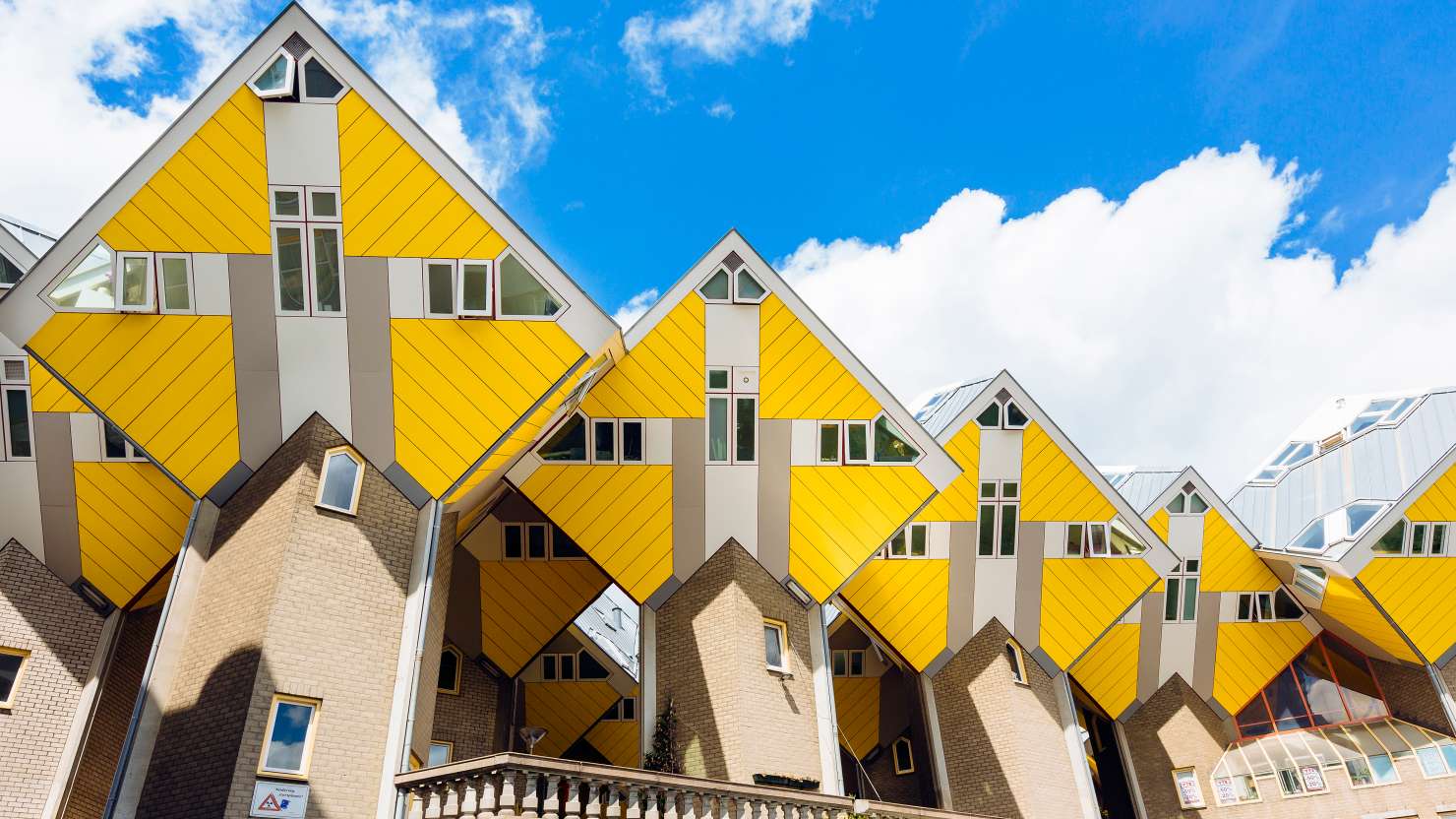
In a city full of interesting architecture – the swan-like Erasmus Bridge, the epic curve of Markthal – Rotterdam’s Cube houses still stand out as special. And stand out they do – painted bright yellow and tilted at a 45-degree angle, the village-like set of 40 homes in the historic Oude Haven is hard to miss.
Architect Piet Blom designed them in the 1980s following a brief to inject some character into the drab, post-war surroundings. His response was to create a village-like community where each cube represents a tree and together form a forest.
Somewhat surprisingly, almost all the Cube houses are still used as private residences, but one (the Kijk-Kubus) is open to the public and offers the chance to explore inside. However, the best views can be had from amongst this urban ‘forest’, where you can play with angles and get a star-shaped view of the sky.
A scenic drive past creative and modern architectural sights such as the Kop van Zuid, the White House, Markthal and the Cube houses.
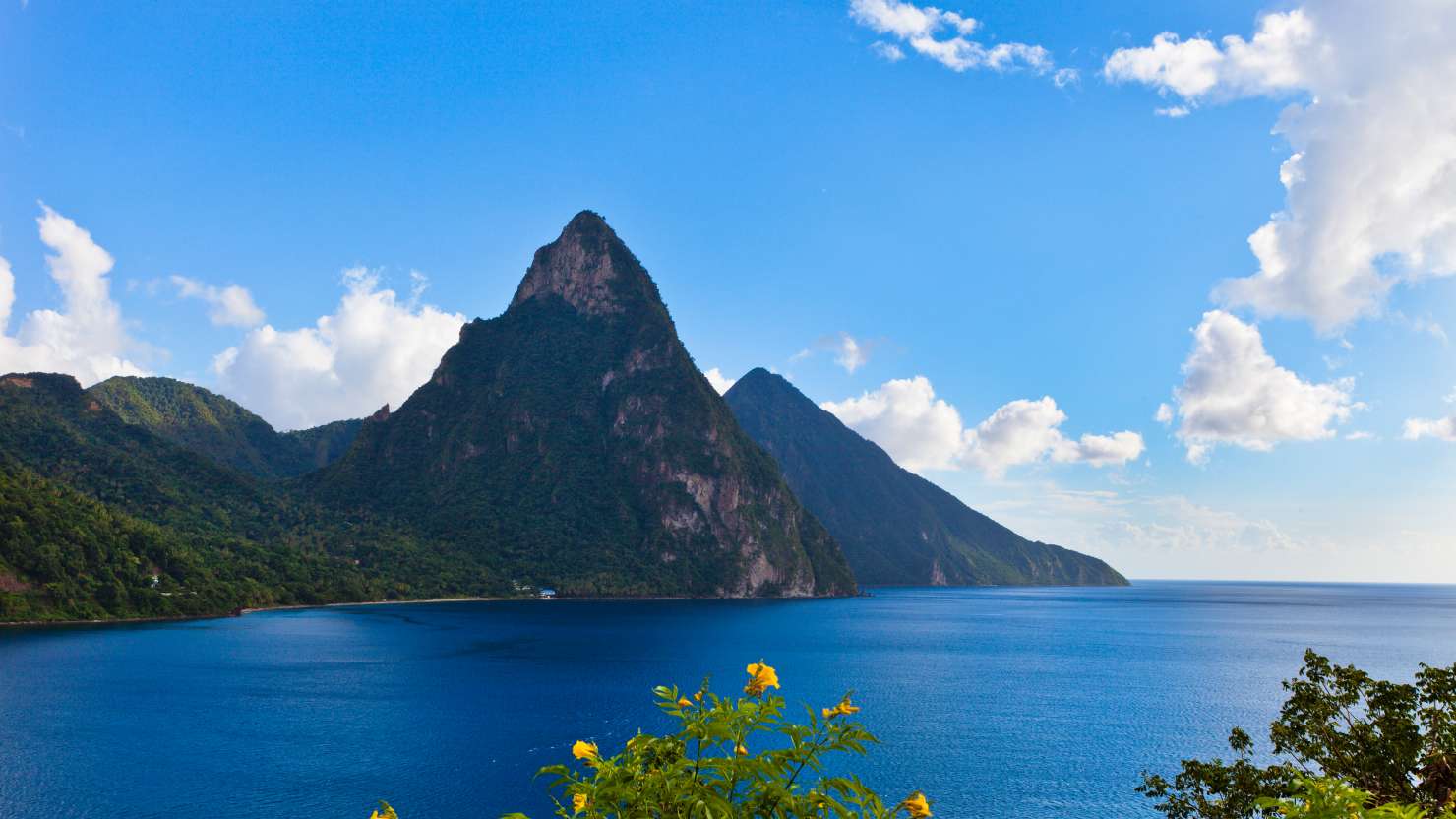
St Lucia’s Pitons – those verdant twin peaks that soar from sea to sky – are so symbolic of the island nation they feature on its flag, not to mention on countless postcards and travel posters. Aptly named Gros Piton (the larger one at 770m) and Petit Piton (only slightly smaller at 743m), the volcanic plugs were created when magma cooled and hardened within a vent of the (now very much dormant) volcanoes some 300,000 years ago.
The Arawaks, the first known inhabitants of St Lucia, worshipped the Pitons as gods, and today, they’ve rightfully received their reverence from UNESCO with World Heritage status.
There are a number of different ways to see them, from the leisurely (cruising by in a catamaran) to the active (hiking up Gros Piton) to the dramatic (helicopter ride, anyone?).
Spend a day discovering the best of St Lucia by land and sea, including Soufrière, home to the Pitons.
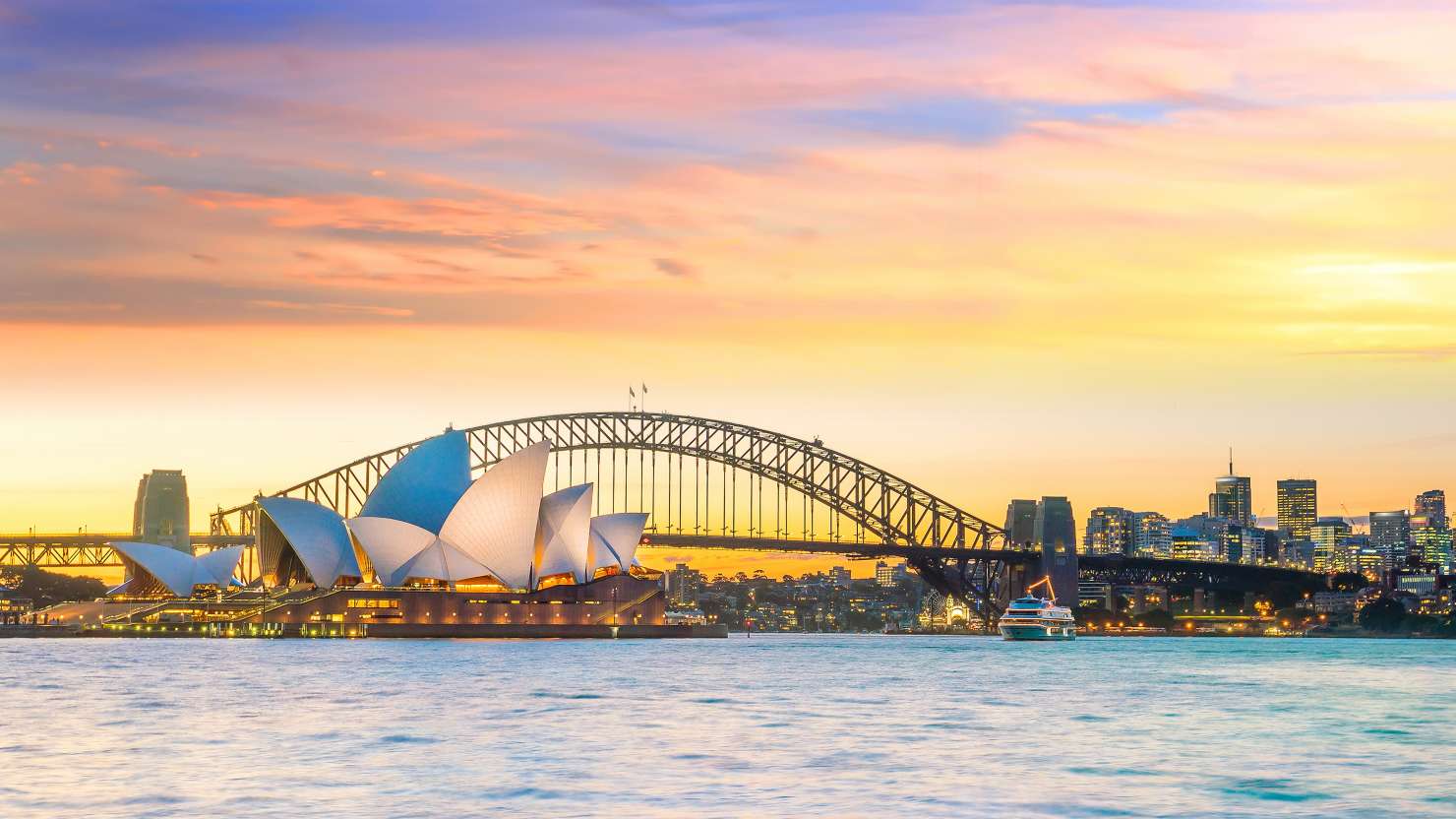
The world’s largest natural harbour is also the world’s most recognisable. With the arching steel of the Harbour Bridge here, the sail-like shells of the Opera House there, where else could you be but Sydney?
The Harbour Bridge – affectionately nicknamed ‘the coathanger’ due to its bowed shape and grey paint – links the central business district with the north shore. You can drive, walk or cycle over it, or for those without a fear of heights, climb it, as the likes of Kylie Minogue, Prince Harry and Oprah Winfrey have done before you.
Just across the harbour is the Opera House, widely considered one of the most beautiful architectural achievements of all time. It was designed by Danish architect Jørn Utzon, who was inspired by both nature and history when he entered an international competition to design the building in 1956. There are numerous spots from which to view it (McMahon’s Point and Mrs Macquarie’s Chair are good ones), or, of course, you could gaze up at it from the foot of the Opera House itself.
Take a guided tour of the famous Sydney Opera House and see sights such as The Rocks and Sydney Harbour Bridge.
of
Don’t miss out! Sign up for latest news, offers and competitions from P&O Cruises.